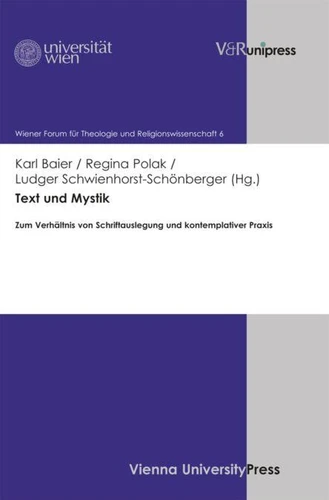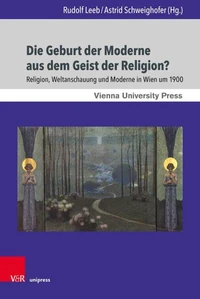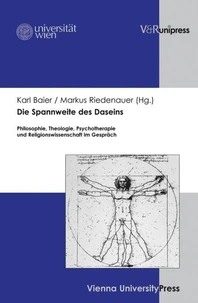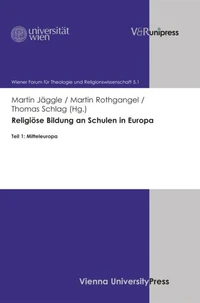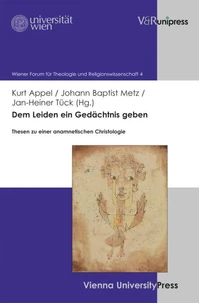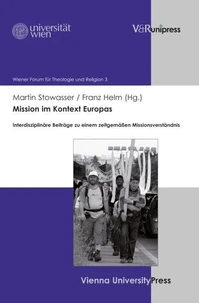Text und Mystik. Zum Verhältnis von Schriftauslegung und kontemplativer Praxis
Par : , , , ,Formats :
Disponible dans votre compte client Decitre ou Furet du Nord dès validation de votre commande. Le format PDF est :
- Compatible avec une lecture sur My Vivlio (smartphone, tablette, ordinateur)
- Compatible avec une lecture sur liseuses Vivlio
- Pour les liseuses autres que Vivlio, vous devez utiliser le logiciel Adobe Digital Edition. Non compatible avec la lecture sur les liseuses Kindle, Remarkable et Sony
 , qui est-ce ?
, qui est-ce ?Notre partenaire de plateforme de lecture numérique où vous retrouverez l'ensemble de vos ebooks gratuitement
Pour en savoir plus sur nos ebooks, consultez notre aide en ligne ici
- Nombre de pages230
- FormatPDF
- ISBN978-3-8470-0116-4
- EAN9783847001164
- Date de parution24/04/2013
- Protection num.pas de protection
- Taille1 Mo
- Infos supplémentairespdf
- ÉditeurV&R Unipress
Résumé
Religious traditions tend to consider a purely cognitive understanding of their holy scriptures as being insufficient. Different spiritual exercises function as preparation for grasping the deeper meaning of the texts. The oldest forms of interpretation are connected to ritual, meditation and prayer. On the other hand, quite early on, a process of differentiation began to separate interpretation and spiritual practice.
Important sections of the explanation of authoritative texts were being relocated within institutions of higher education. This resulted in a tension between religious reading and scientific reading. This volume brings together an array of specialists who analyze the relation between spiritual practice and the scientific reading of holy texts in Hinduism, Buddhism and Christianity. In addition to detailed historical analyses, particular attention is paid to the significance of contemplative exegesis in contemporary Christian theology.
Important sections of the explanation of authoritative texts were being relocated within institutions of higher education. This resulted in a tension between religious reading and scientific reading. This volume brings together an array of specialists who analyze the relation between spiritual practice and the scientific reading of holy texts in Hinduism, Buddhism and Christianity. In addition to detailed historical analyses, particular attention is paid to the significance of contemplative exegesis in contemporary Christian theology.
Religious traditions tend to consider a purely cognitive understanding of their holy scriptures as being insufficient. Different spiritual exercises function as preparation for grasping the deeper meaning of the texts. The oldest forms of interpretation are connected to ritual, meditation and prayer. On the other hand, quite early on, a process of differentiation began to separate interpretation and spiritual practice.
Important sections of the explanation of authoritative texts were being relocated within institutions of higher education. This resulted in a tension between religious reading and scientific reading. This volume brings together an array of specialists who analyze the relation between spiritual practice and the scientific reading of holy texts in Hinduism, Buddhism and Christianity. In addition to detailed historical analyses, particular attention is paid to the significance of contemplative exegesis in contemporary Christian theology.
Important sections of the explanation of authoritative texts were being relocated within institutions of higher education. This resulted in a tension between religious reading and scientific reading. This volume brings together an array of specialists who analyze the relation between spiritual practice and the scientific reading of holy texts in Hinduism, Buddhism and Christianity. In addition to detailed historical analyses, particular attention is paid to the significance of contemplative exegesis in contemporary Christian theology.

